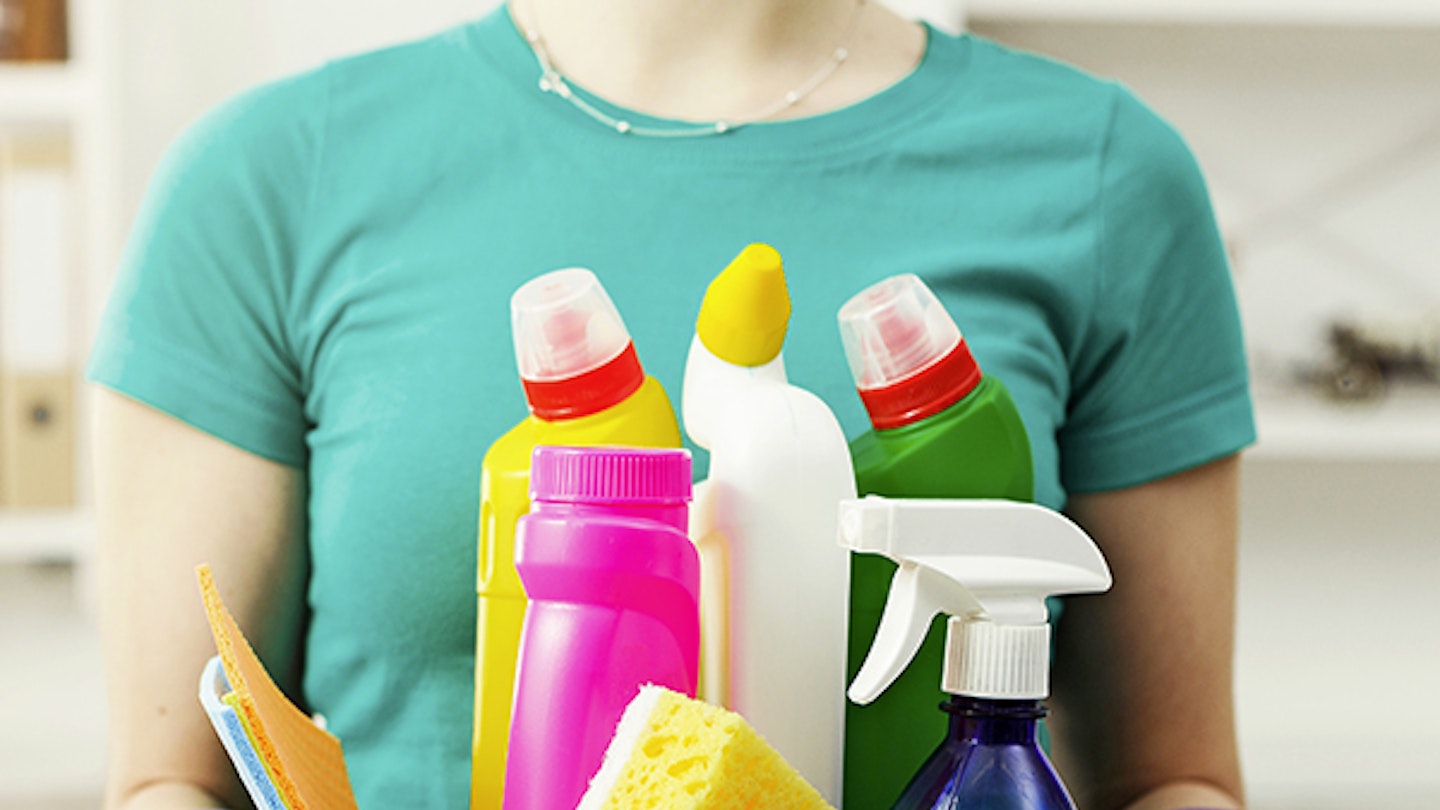What do you have under your kitchen sink? If you’re like most people, you’ll have a bottle of bleach and maybe a product to degrease your kitchen, one to wipe away bacteria, another to make your bathroom sparkle, an air-freshener or two, and perhaps some cleansing wipes.
But although they help us clean our homes, there is increasing concern that some products may be bad for our health.
Many household products — such as sprays and de-greasers — contain things called volatile organic compounds, or VOCs.
These are particles that are released into the air we breathe. They’re found in some air-fresheners, cleaning products, perfumes and cosmetics.
Studies have also found VOCs in carpets, paints and building materials, such as treated woods. In fact, US researchers found that as many VOCs in the air came from industrial and household products as from exhaust pipes.
The worrying thing is that in high enough doses, the chemicals in VOCs can cause serious health problems. They are easily inhaled and can act as an irritant, causing asthma in some cases. They can cause eye, nose and throat irritation, nausea and damage the liver, kidneys and central nervous system.
Other symptoms include headaches, dizziness and fatigue.
Eric Lim, a consultant thoracic surgeon at London’s Royal Brompton Hospital, is concerned because non-smoker lung cancer is on the increase in the UK and has doubled in the last seven years – interestingly, it’s more common in women.
He says: ‘One possibility is that women are exposed to more volatile organic compounds that are released in cosmetics, deodorants, cleaning products and cooking fumes compared to men.’
What are VOCs?
Nicola Carslaw, a professor in indoor air chemistry at York University says: ‘VOCs are chemicals that contain atoms of carbon, hydrogen and oxygen, and they’re the chemicals in cleaning products that give them their fragrance or their degreasing ability. Many of the VOCs we use aren’t harmful in themselves, but when they’re released into the air they can react to form harmful species such as formaldehyde.’

What products contain VOCs?
Basically, any product that has a smell likely contains VOCs — examples are cleaning products, scented candles and air-fresheners.
Research chemist, Dr Jessica Gilman, says: ‘The only commonly-used products that don’t contain VOCs would be water, baking soda or bleach. All formulated, brand-name products will most certainly contain VOCs.’
The benefits vs the risks
Professor Carslaw says: ‘You have to weigh up the effect of hygiene against the effect on your health. Of course, cleaning your home is very important for health and I would not be discouraging people from doing that. It’s about using the product in moderation and as instructed by the manufacturer. Also, think about eradicating the source of a bad smell or uncleanliness — things like air fresheners serve no real purpose — they only mask the bad original smell.’
Find a balance
Professor Carslaw continues:
‘It’s not about completely eliminating the use of such products, but using them in moderation as well as following the instructions, such as only spraying in well-ventilated areas or only using a certain amount of product. A clean home is really important and obviously has a very good impact on human health. But always follow the instructions and use the products in moderation.’
HOW TO CLEAN SAFELY
•Ventilate — open your windows when using cleaning products and don’t use them in enclosed spaces.
•Read the instructions — if it says use a pea-size amount, don’t use a big dollop!
•Avoid strong smells such as air fresheners — most air fresheners only cover the bad smell, they don’t fix it.
• Use only as often as you need — cleaning your home once a week, following instructions, is reasonable. But if you clean every day, you will be inhaling more VOCs.
